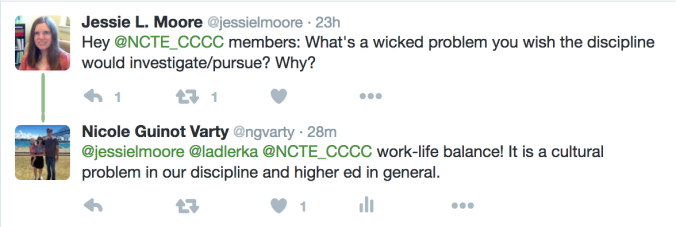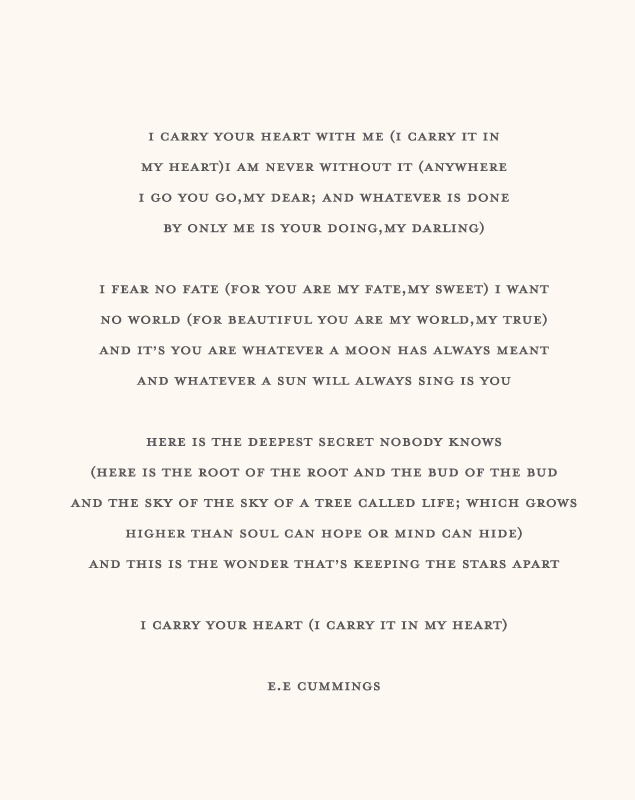One of the main claims bell hooks makes in her book, Teaching Community: A Pedagogy of Hope, is not only that we are losing community in higher education, but that losing community in academia is dangerous, for two reasons. First, losing community means “the loss of closeness among those with whom we work and with our students,” and second it means “the loss of a feeling of connection and closeness with the world beyond the academy” (xv).
To me, the first loss is important because I have a felt sense of its truth, its presence in my life and work as an academic. I’m ironically not alone in feeling alone. The lack of connection has been an item of discussion in my department, as we work to build a stronger sense of community within our graduate program, and across the ranks of professors, tenure track, full-time and part-time faculty. Why does community need building in a department where everyone (ostensibly) is working toward common goals with common passions? Well, working side-by-side is not the same as working together, and at times the pressure of my personal work load can feel so overwhelming, all I want to do is shut my office door and try to knock some tasks off of the ever-growing to-do list.
Colleen Flaherty reports that a study of faculty work loads at Boise State has preliminary findings of loneliness in the occupation of teaching, due the sheer amount of work: “faculty may feel generally isolated even though they work in a setting full of people, including colleagues and students.”
Well, yeah. We do.
I do.
For me, it may be partially a factor of my maternity leave last summer, and subsequent reclaiming of my rhythm at work since the baby was born. Or it may just be a symptom of the institution of higher ed: though I have great friends at work, I don’t always see them. When I do see them, we don’t always get to connect–meetings, teaching and student conferences demand attention first. It may be that I have a long commute (like many others), and so I don’t often “hang out” after my work is done, choosing instead to make a break for the (hopefully un-clogged) freeways and home. As an idealist prone to ask myself what I can do to help make change, I’ve been wondering: what are the ways to build a sense of community and “place” for academics working at a commuter campus?
The second loss hooks describes is important, because it is directly connected to our ability as educators to tell our own story about what it is we do. If we lose our connections with “the world beyond” academia, we lose our ability to inform the stories that get told about us.
I find hooks’ writing stirring and inspiring. Speaking from the perspective of an educator, to educators, she wants to “challenge the prevailing notion that it is simply too difficult to make connections” in the academy–teacher to teacher, teacher to student, etc. From beyond the community, she seeks to apply progressive and critical pedagogical theories to promote a sense of community and hope, to “confront feelings of loss and restore our sense of connections” (xv).
But, she does write this book from beyond the community of academia, outlining in the chapter, “Time Out: Classrooms without Boundaries,” her process of leaving her university to teach in the wide world. She sounds relieved to have made this leap. But many, like myself, cannot follow her into the freedom of independent workshop teaching. We must work from within the system to find the hope that hooks describes. Not an easy task, as hooks herself notes:
“Teaching is a caring profession. But in our society all caring professions are devalued” (86).
How can we maintain our caring attitudes, toward our students, our colleagues, ourselves? hooks draws attention to the practice of love–“All meaningful love relations empower each person engaged in the mutual practice of partnership” (136), and of care for our souls, drawing particularly on Buddhist teachings and the writings of Parker Palmer. hooks quotes Palmer,”Telling teachers ‘to see a transformed way of being in the world,’ he gives voice to spiritual yearning:
‘In the midst of the familiar trappings of education–competition, intellectual combat, obsession with a narrow range of facts, credits, credentials–what we seek is a way of working illumined by spirit and infused with soul.’ ” (179).
I’m not sure where my readers might fall on the continuum of “spiritual practice,” but I believe we are spiritual beings, and that our spirits matter, and should be attended to. What I long for is a practice of teaching and learning and being in academia that also allows for connection and a sense of community with and among my colleagues and students. Is such a thing possible? I’d like to think so. In our most luminous moments, I think the members of my department prove that it is. It’s far from easy, automatic, or even safe. It requires, I’m learning, constant attention to my own inner life (soul self-care), and then conscious effort to reach out (practice love). That may mean engaging in, negotiating, working kindly on partnerships with my colleagues, or it may mean partnering with my students in their learning practices. It may be as broad as supporting our overall program goals. Or, it may be as simple as keeping my office door open.






















